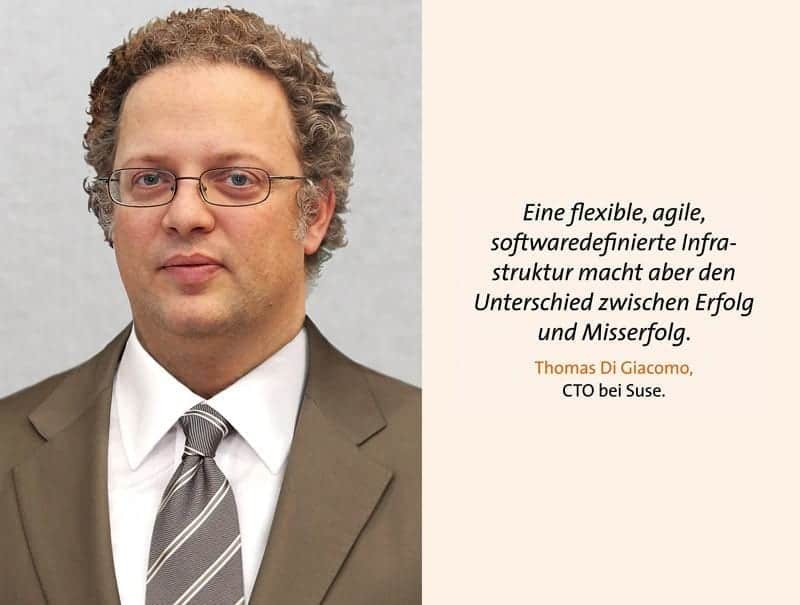Cloud first, cloud only?


IT managers expect support for their transformation processes, want to improve their agility, reduce risks and lower operating costs, according to the "Cloud Deployment 2017" study, for which over 1400 IT experts from 20 countries were surveyed on behalf of Suse.
Key findings are: Cloud use in German companies continues to rise with a trend towards hybrid systems. Cloud technology has matured to such an extent that many companies are now pursuing a cloud-first or even a cloud-only strategy.
The survey participants expect growth for all types of clouds to continue in Germany. For hybrid systems, 62 percent expect this, for private clouds 52 percent and for public cloud 47 percent of respondents.
More than 57 percent cite cost reduction as a reason for cloud deployment. 54 percent see an increase in the productivity of developers and programmers as a result.
53 percent promise to consolidate the data center. Private and hybrid models are preferred for business-critical processes. 82 percent of respondents say they will expand their focus from development in the public cloud to production in their own private cloud.
SDI is the future
96 percent of respondents believe that SDI is the future of the data center. They recognize various technical advantages in SDI for their business processes. 71 percent cite faster provisioning of IT resources, 54 percent simpler data center management and 51 percent the introduction of modern IT methods such as DevOps and hybrid cloud systems.
DevOps is evolving from hype to normality: companies are giving DevOps methods a higher priority, with 84 percent of IT experts even describing DevOps as part of their future IT strategy.
Even though the introduction of DevOps is complex, SDI offers the ideal basis for the realization of true DevOps methods with a flexible and modular cloud infrastructure.
Container adoption is on the rise, with 32 percent of enterprises currently using containers and another 33 percent planning to use them in the next twelve months. Containers are seen by many as a foundation for DevOps, enabling IT to better utilize resources (49 percent in Germany), accelerate application development (46 percent), and improve reliability and cloud portability (40 percent).
Experience counts
Skills and experience continue to be of great importance: 75 percent of German companies are concerned about a lack of skilled workers on the market to implement their cloud projects.
Just as many are concerned about the lack of skills in their own IT departments. IT leaders believe it is important to improve the skills of their staff in private cloud (96 percent), hybrid cloud (93 percent), analytics (91 percent), and the increasingly important topics of IoT (82 percent), DevOps (90 percent), containers (83 percent) and OpenStack (77 percent).
43 percent of the German respondents believe that the responsibility for developing new IT skills lies with the employees and not with the companies.
OpenStack still on the rise
OpenStack is becoming increasingly popular in many enterprises that are shifting to private and hybrid cloud solutions. Of all respondents, 23 percent are already using OpenStack. In 2015, that figure was just 15 percent globally.
In Germany, the figure is only 14 percent so far. 82 percent of all participants use or plan to use OpenStack. 37 percent of Germans are currently testing its use.
Enterprises are gravitating toward open source private cloud technologies because of their flexibility, integration capabilities and the opportunity to reduce overall costs.
"Increasing customer demand and disruptive developments in the industry are causing IT managers in Germany to rethink their current strategies and look for the best way to improve agility and development speed without increasing costs"
says Michael Jores, Regional Director Central Europe at Suse.








